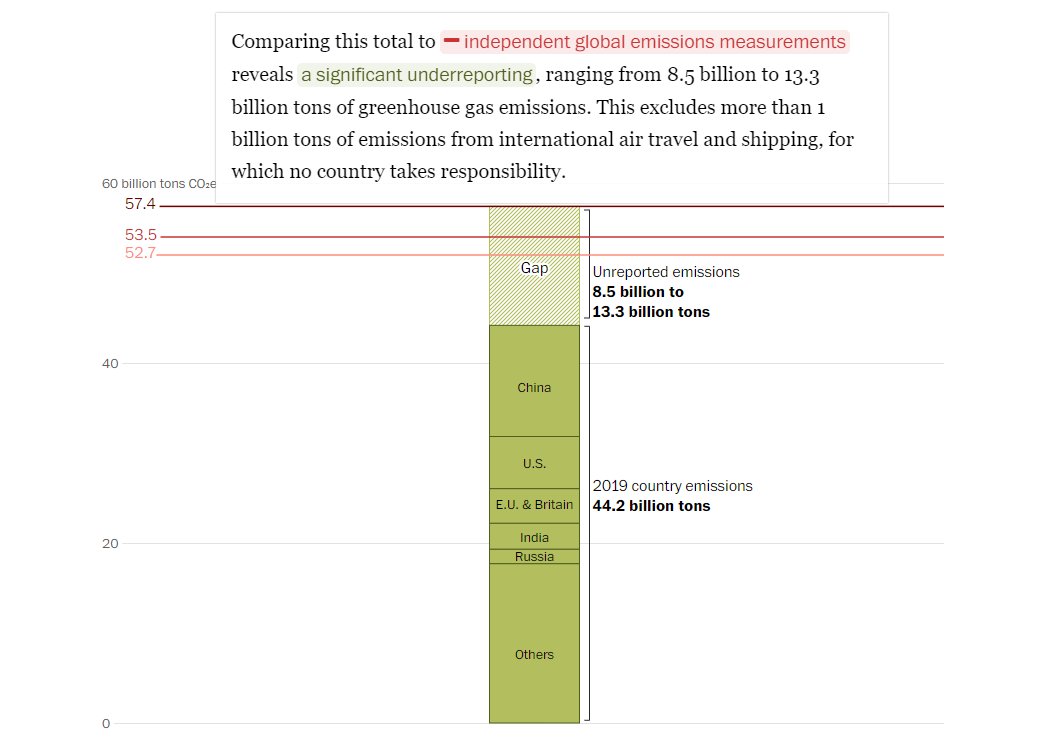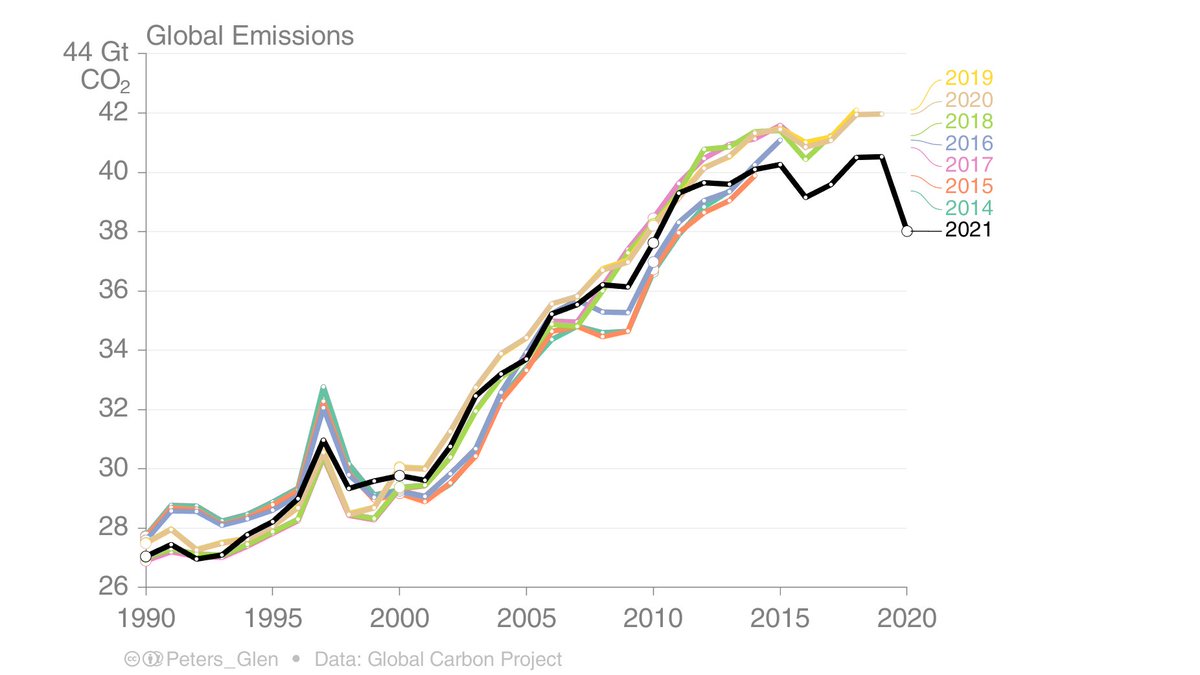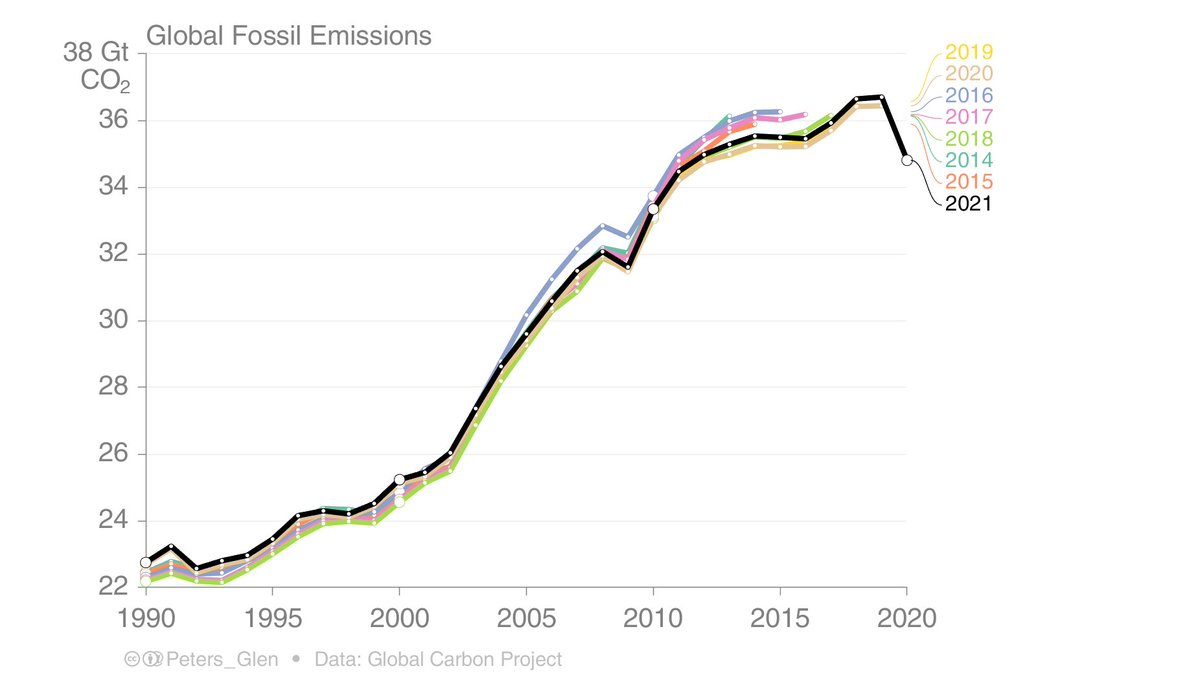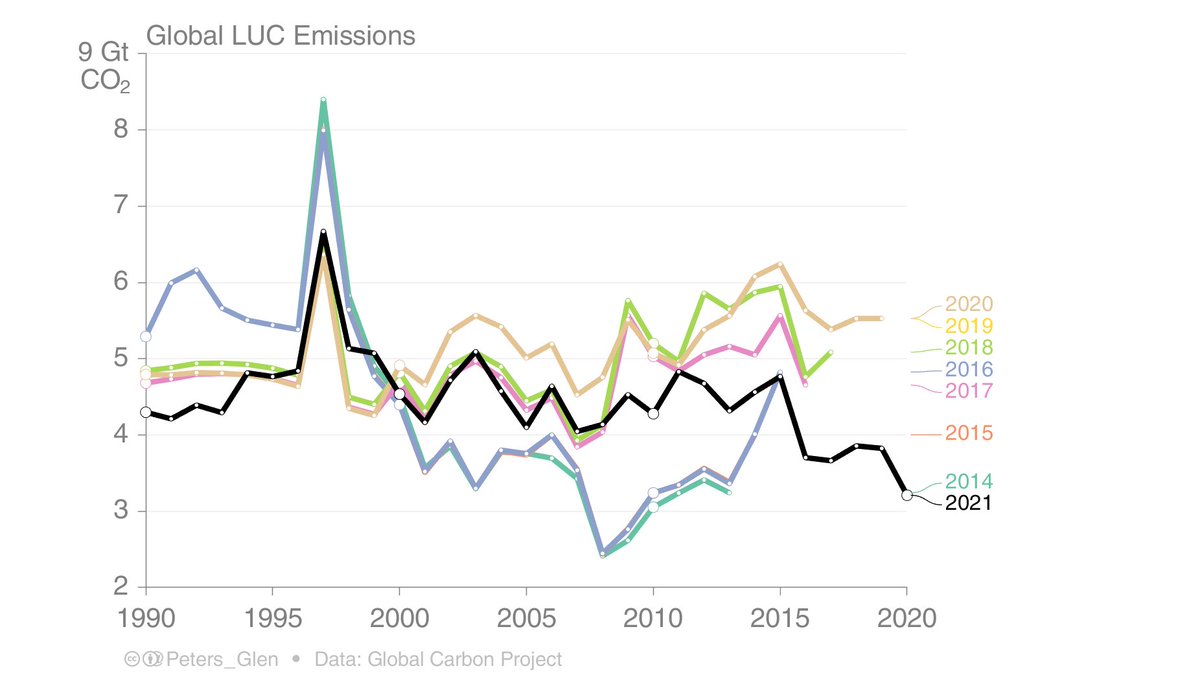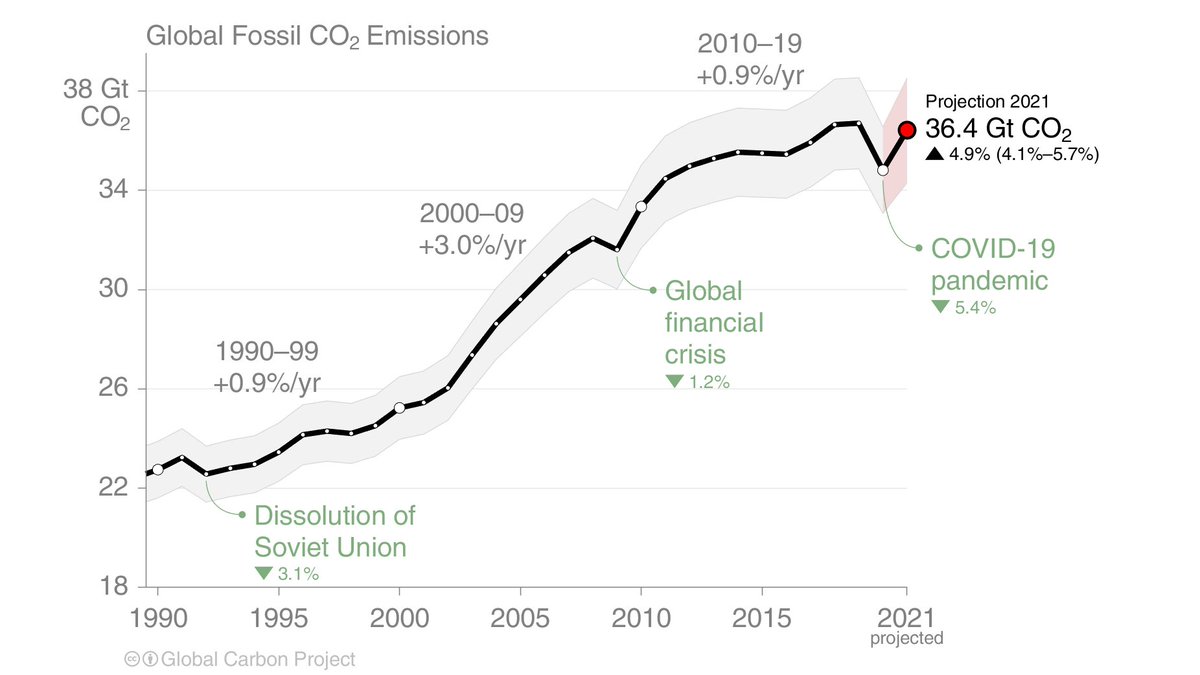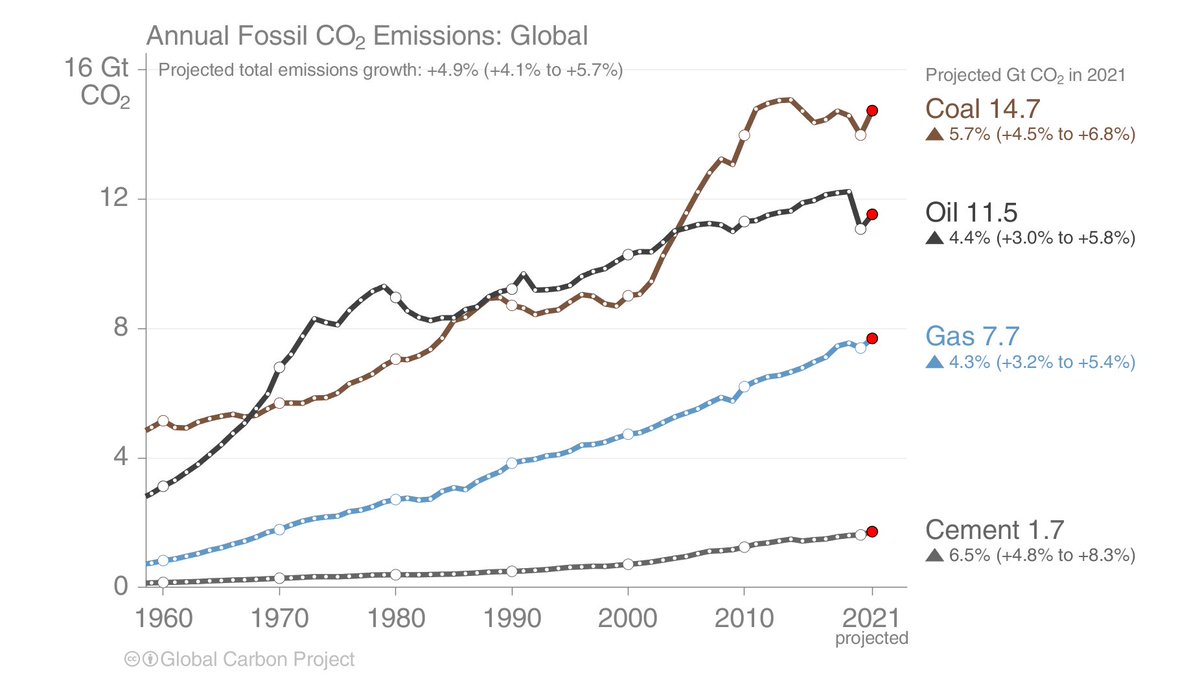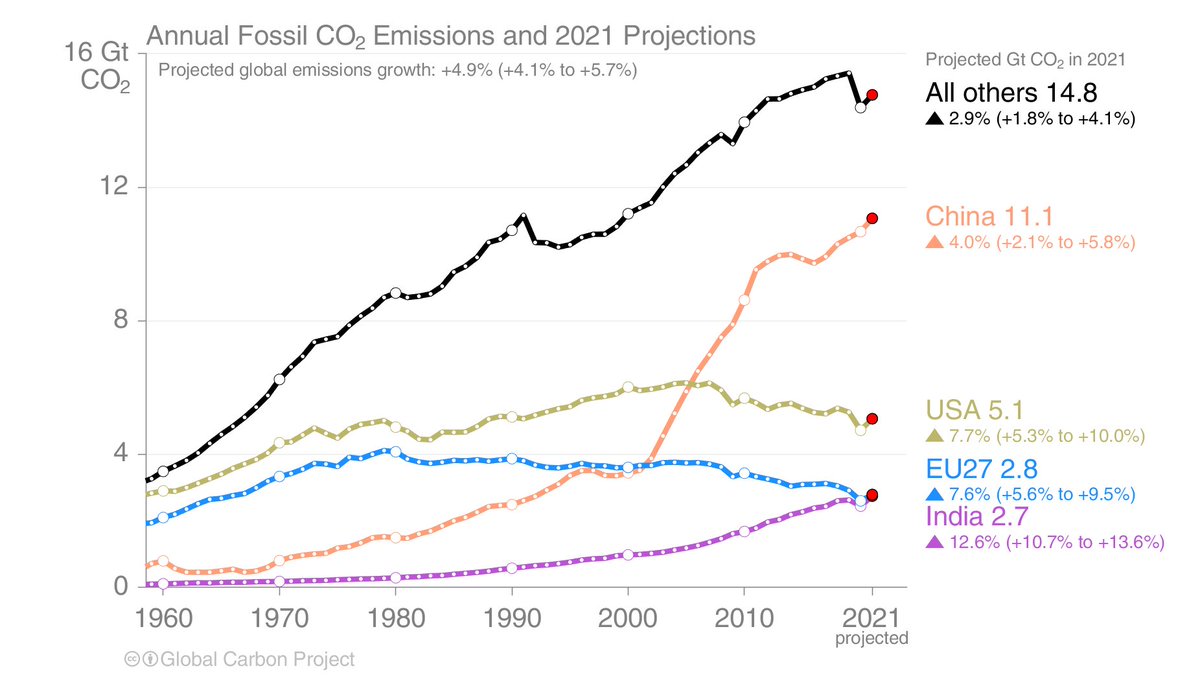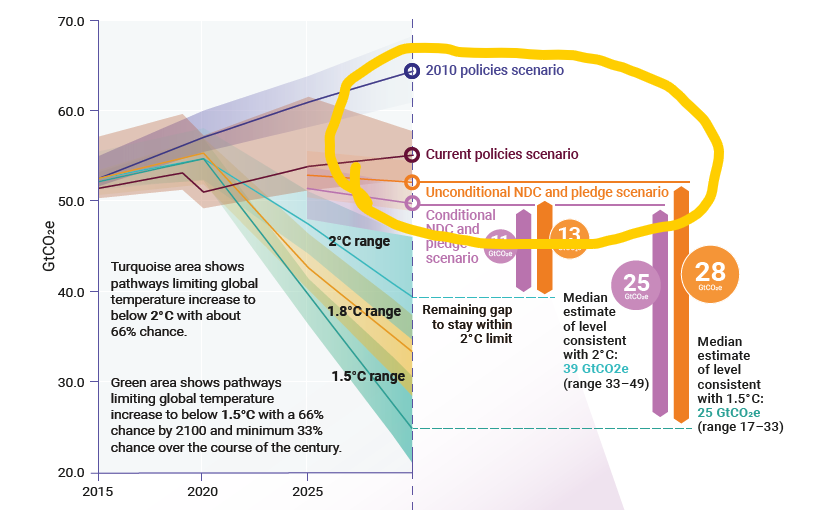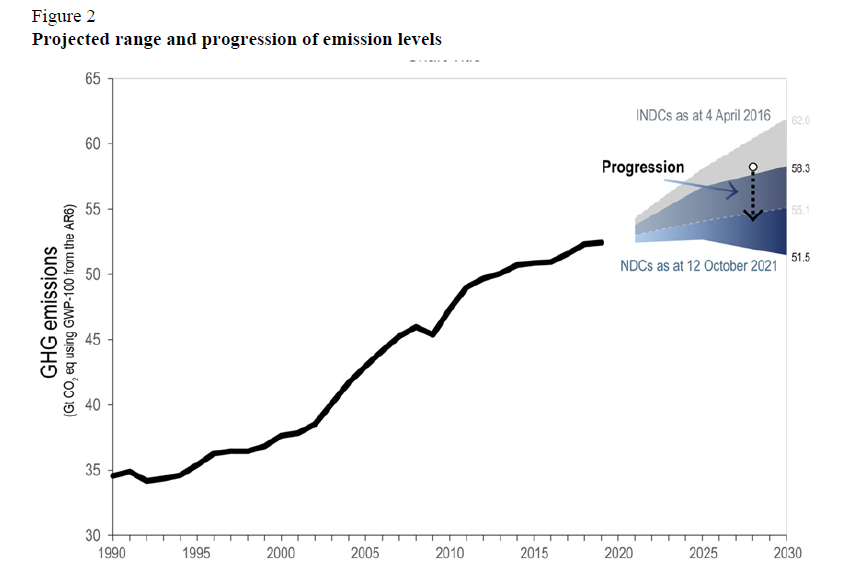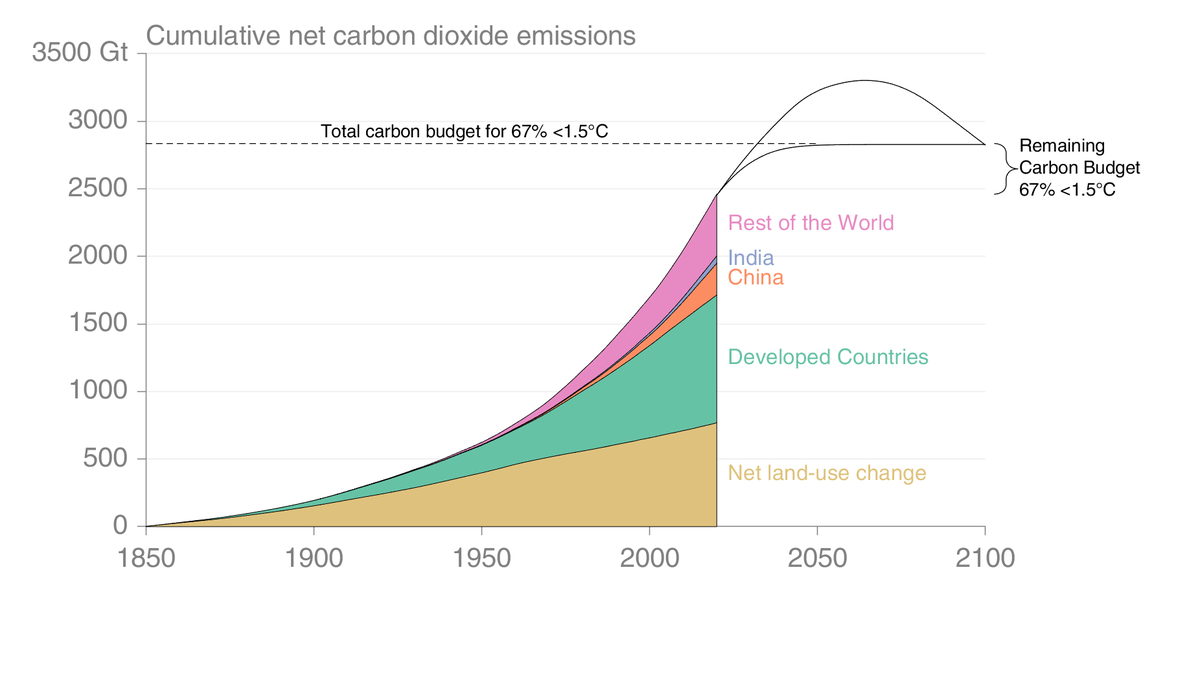
Of the top-6 largest aggregated emitters globally, India is the only one with per capita emissions below the global average.
What about coal, oil, gas per capita?
robbieandrew.github.io/GCB2021/index.…
1/
What about coal, oil, gas per capita?
robbieandrew.github.io/GCB2021/index.…
1/
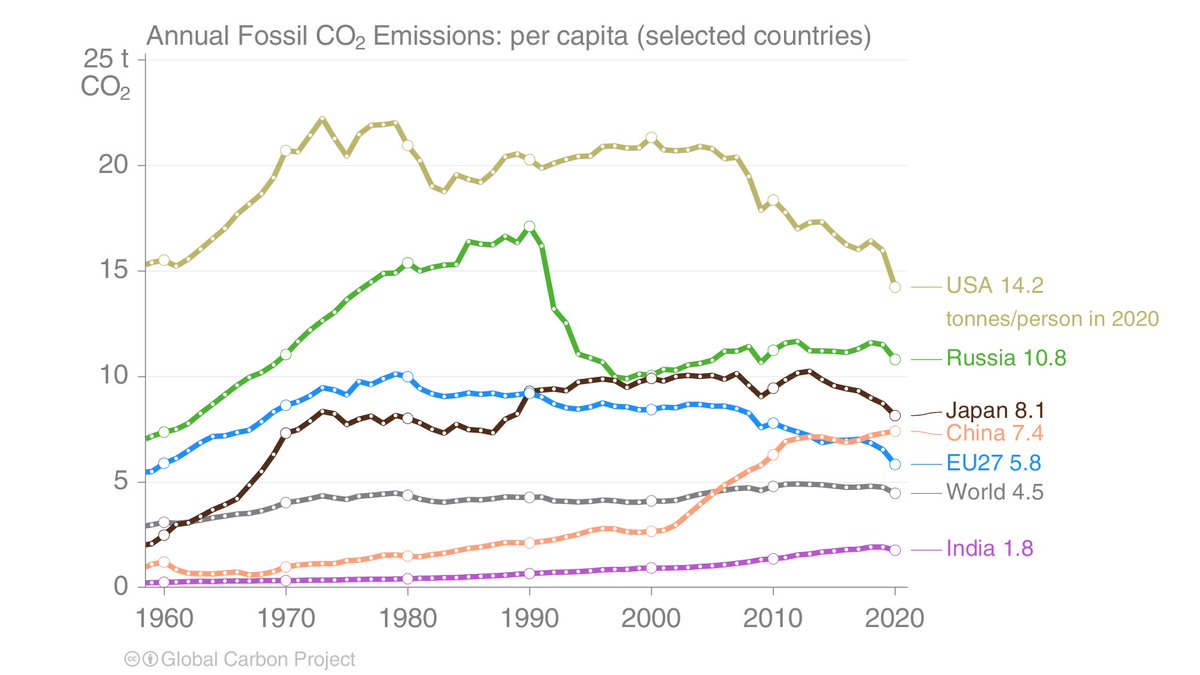
The US & EU have had large drops in coal CO₂ emissions per capita over the last decades. They have stable energy use & aging coal infrastructure, so new energy sources displace coal.
India is still growing from very low energy per person, & has a young coal fleet.
2/
India is still growing from very low energy per person, & has a young coal fleet.
2/
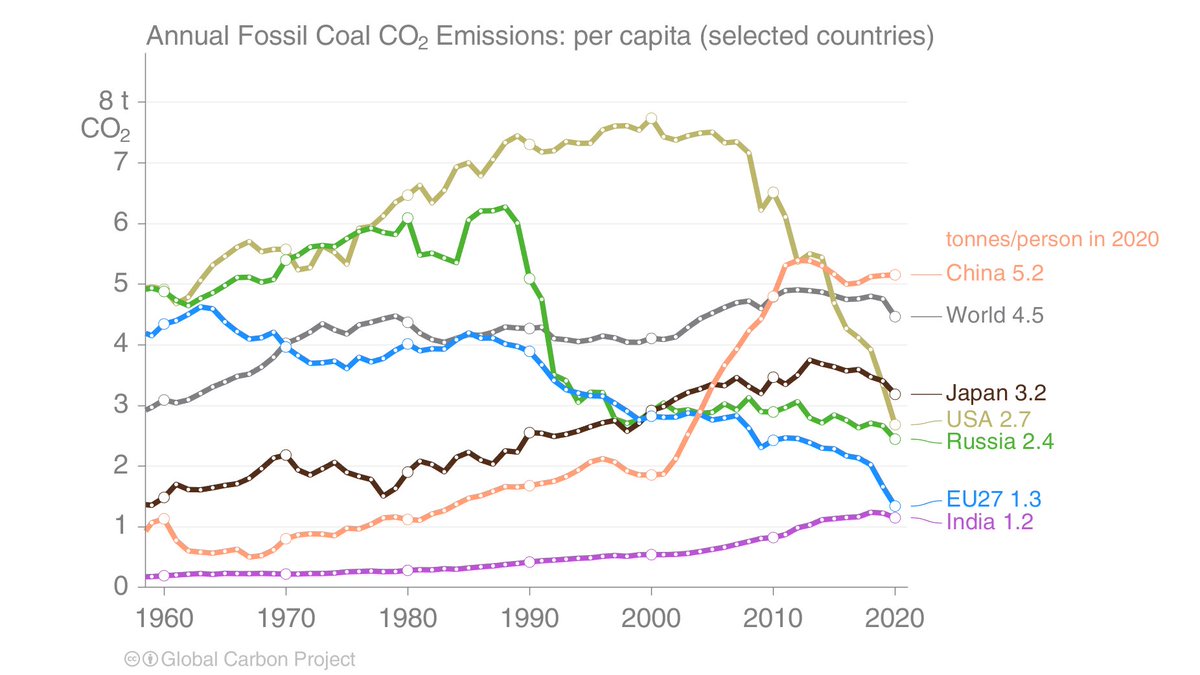
Oil CO₂ emissions per capita are very low in developing countries, particularly India. The US & EU are struggling to reduce oil use.
3/
3/
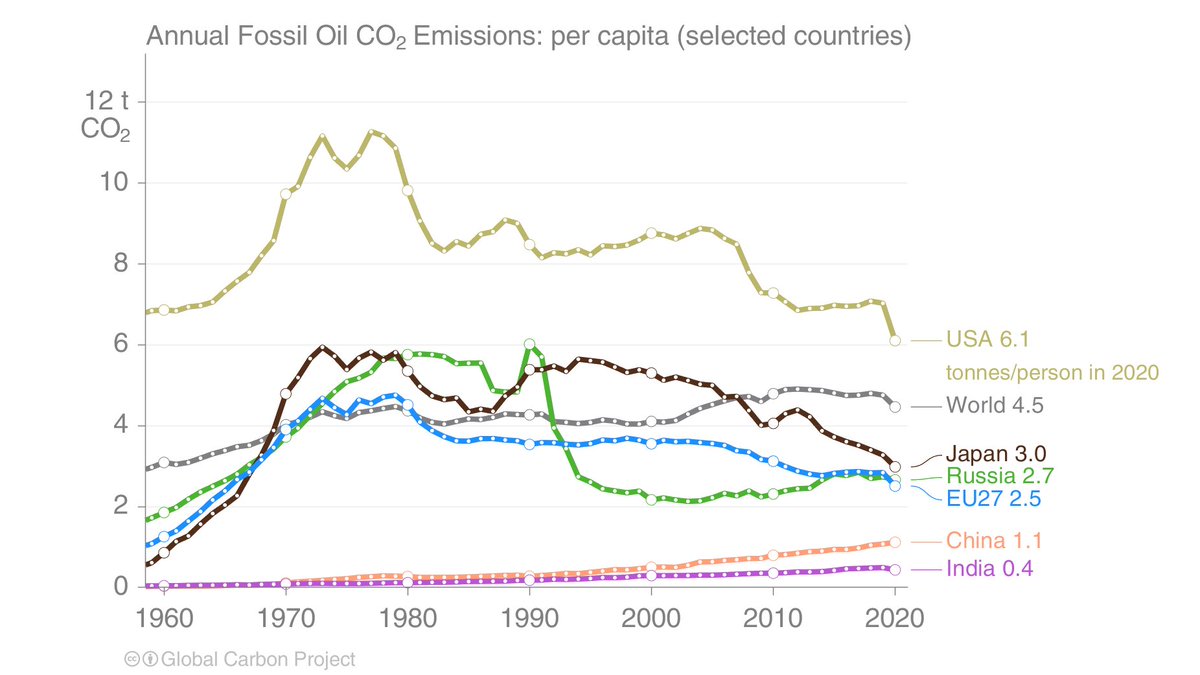
Gas CO₂ emissions per capita are also very low in China & India, though growing rapidly in China (India uses very little gas, regardless of per capita).
Little indication of gas use per capita dropping anywhere.
4/
Little indication of gas use per capita dropping anywhere.
4/

All countries need to get out of coal, oil, & gas, with any remaining offset with expensive or risky Carbon Dioxide Removal (afforestation is risky because of permanence issues).
Is India & unabated coal the problem? I suspect there are bigger elephants in the room...
5/
Is India & unabated coal the problem? I suspect there are bigger elephants in the room...
5/
I have no problem with text on 'phase out coal', I have a problem that it does not say 'phase out coal, oil, & gas', & India gets blamed for changing it to 'phase down coal'. Did I hear the US or EU push to include phase out/down oil & gas in the text?
6/6
6/6
And thanks to @Anduril100 for noticing I made a mistake on the global per capita emissions in the coal, oil, & gas figures (I have the total per capita). Woops...
Here are the correct figures & they make more sense!


Here are the correct figures & they make more sense!
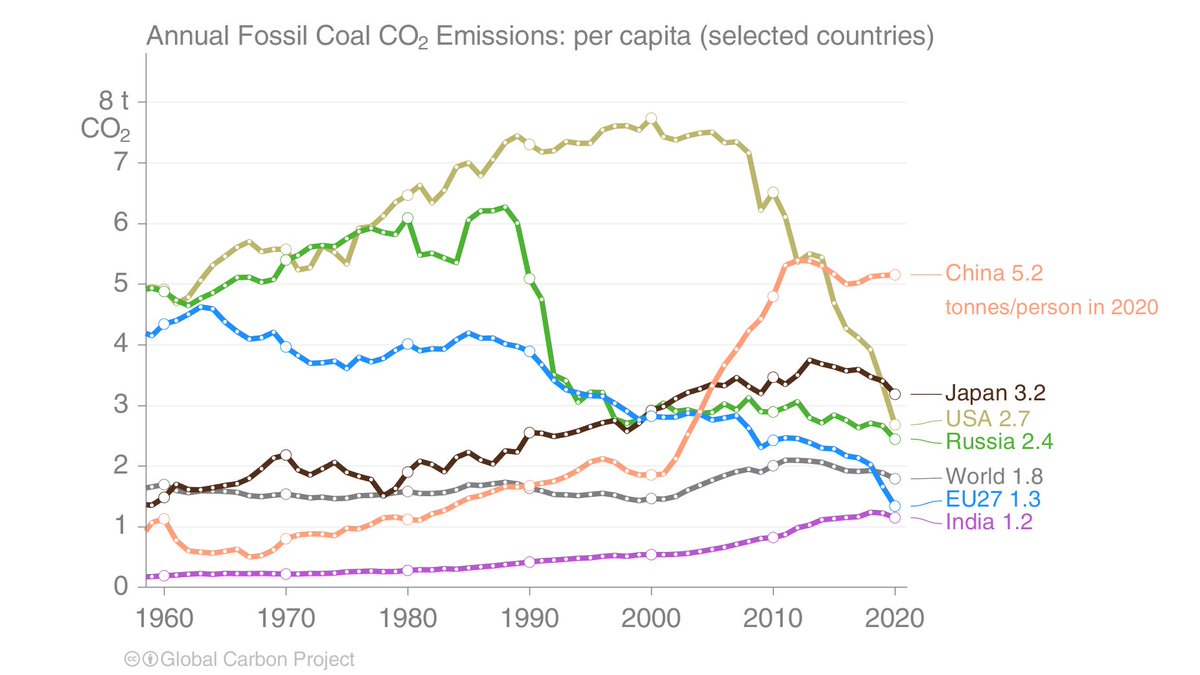
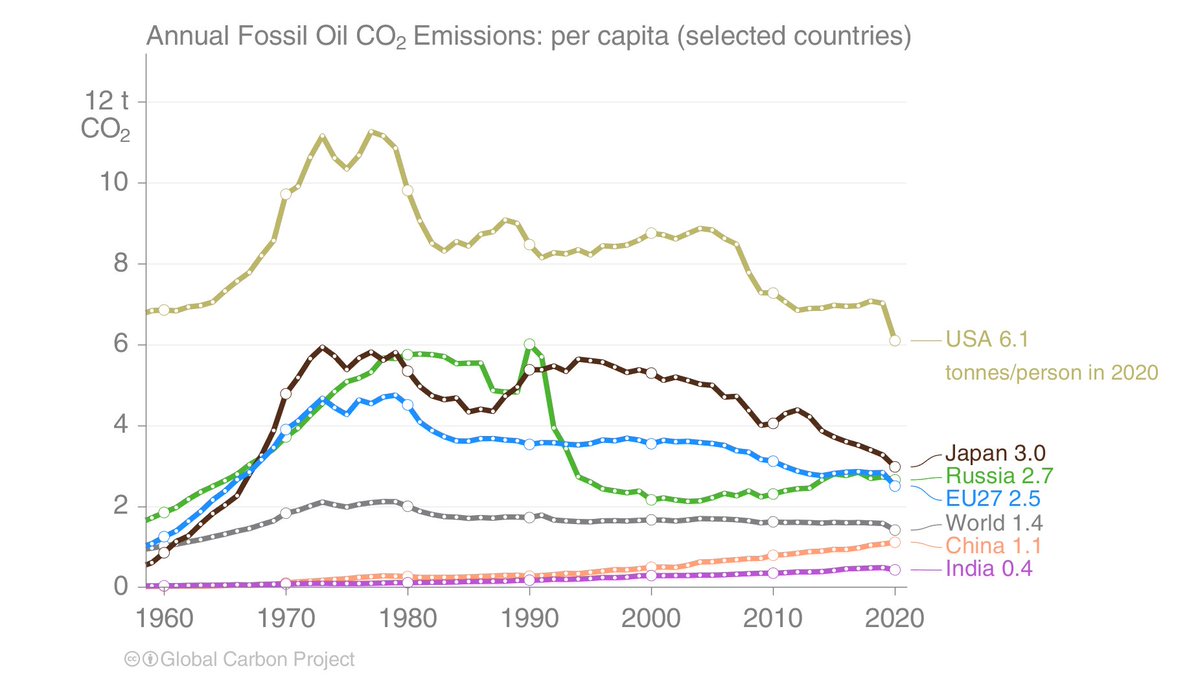
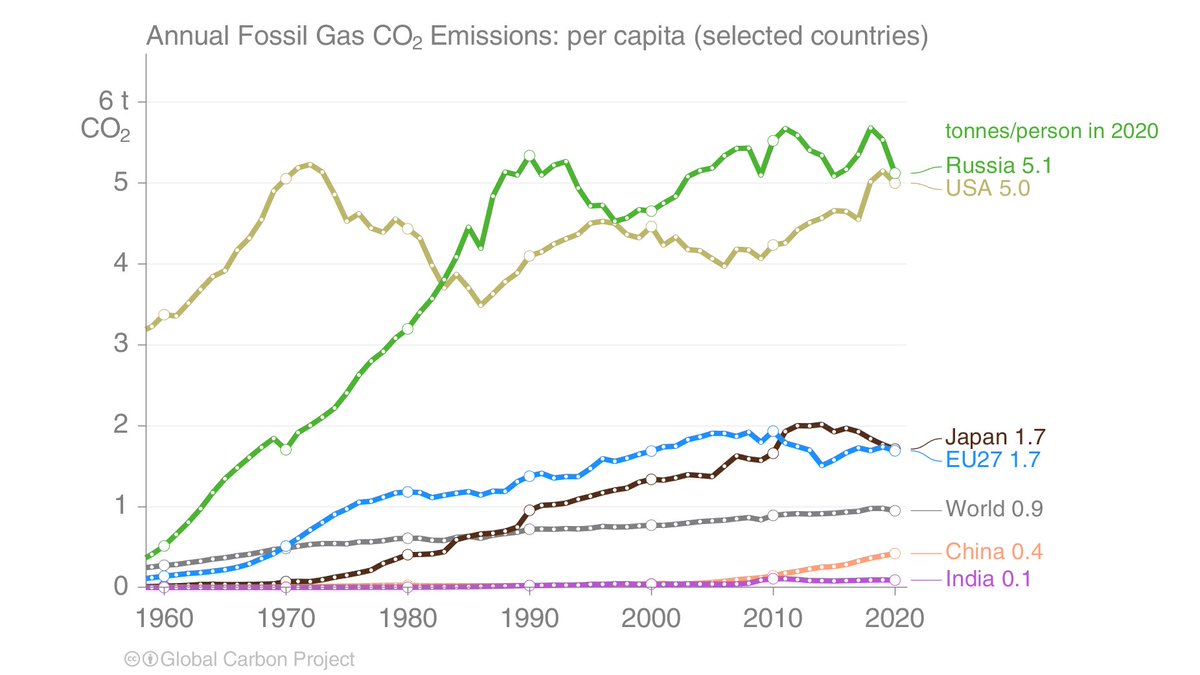
• • •
Missing some Tweet in this thread? You can try to
force a refresh


